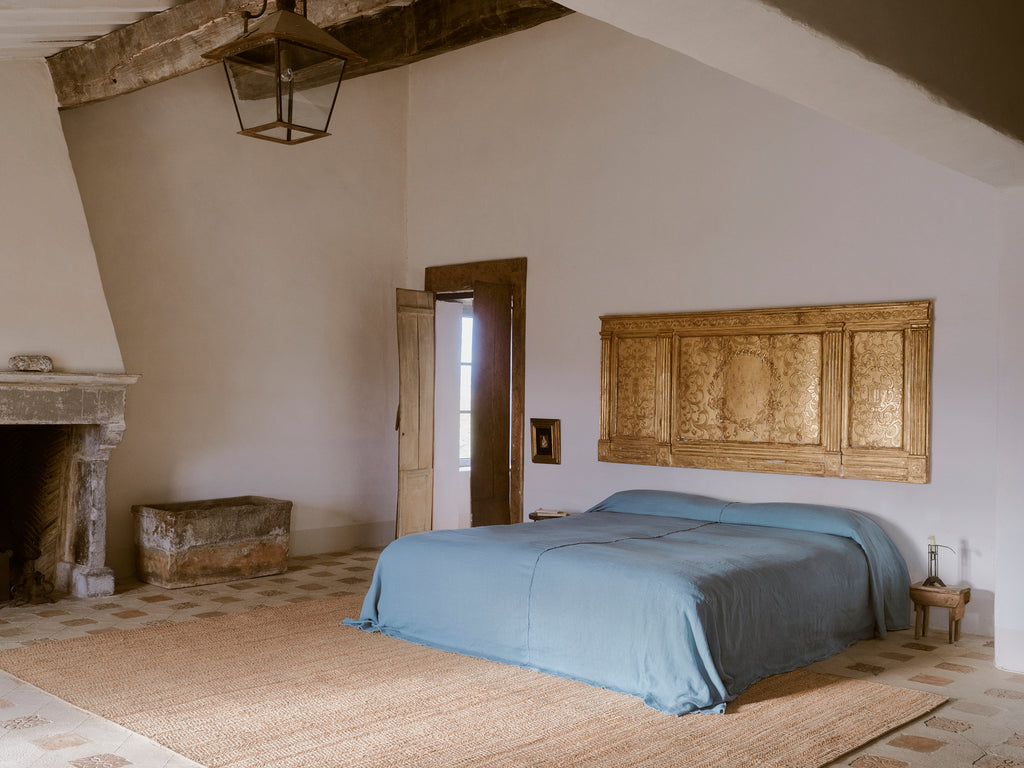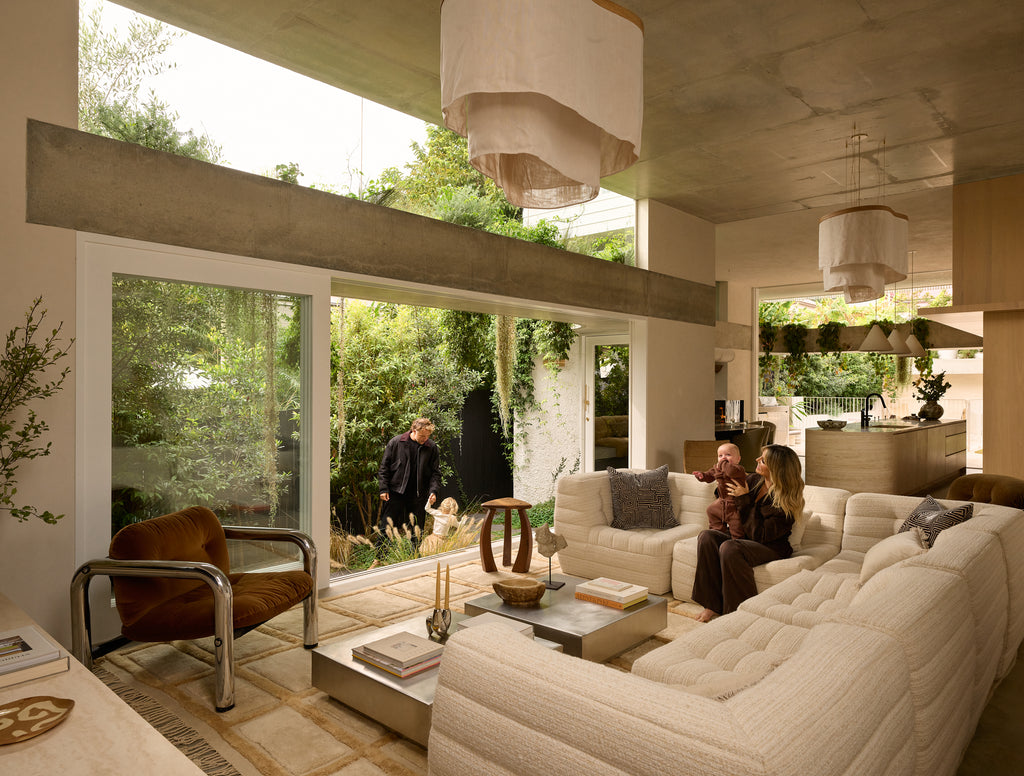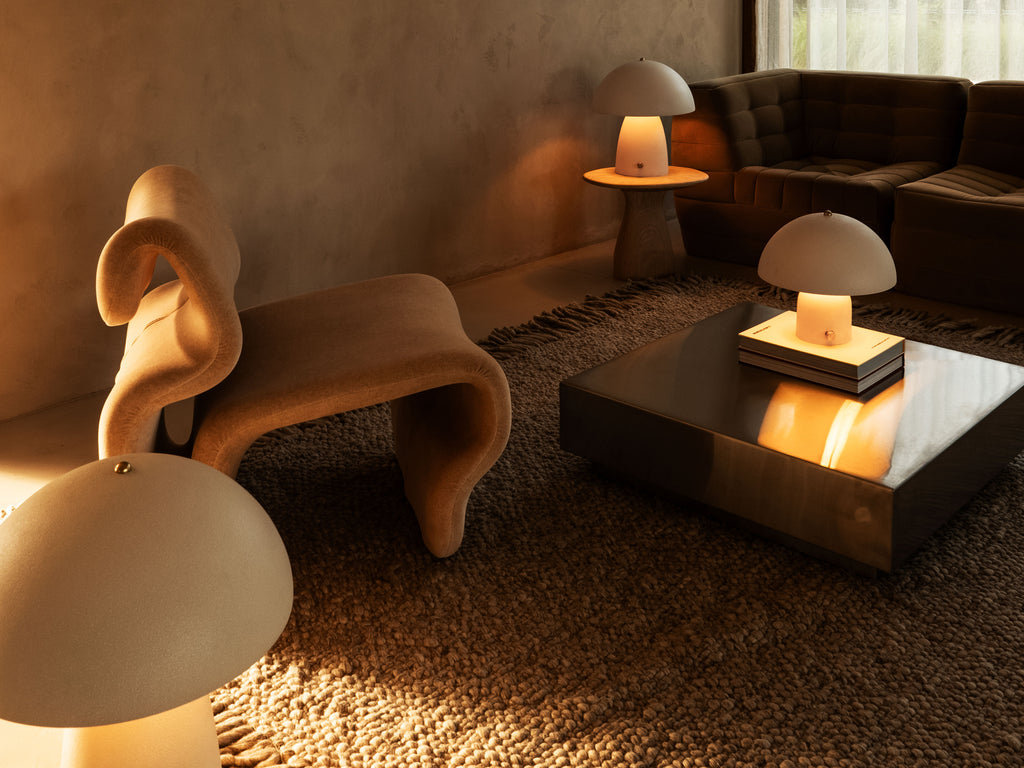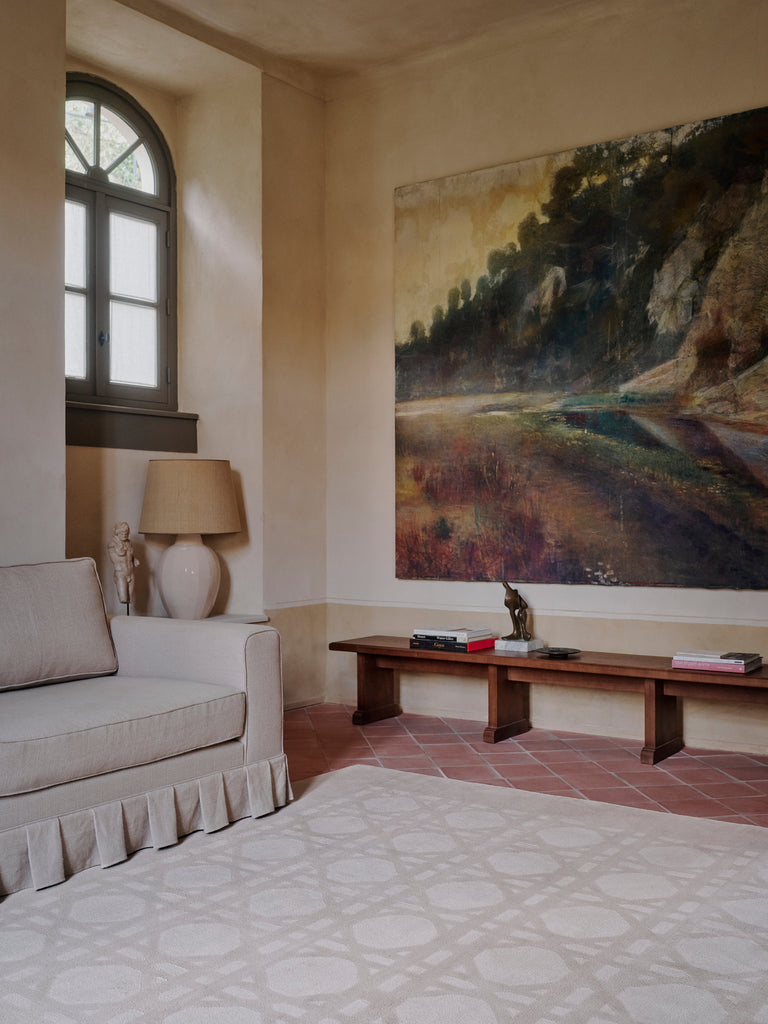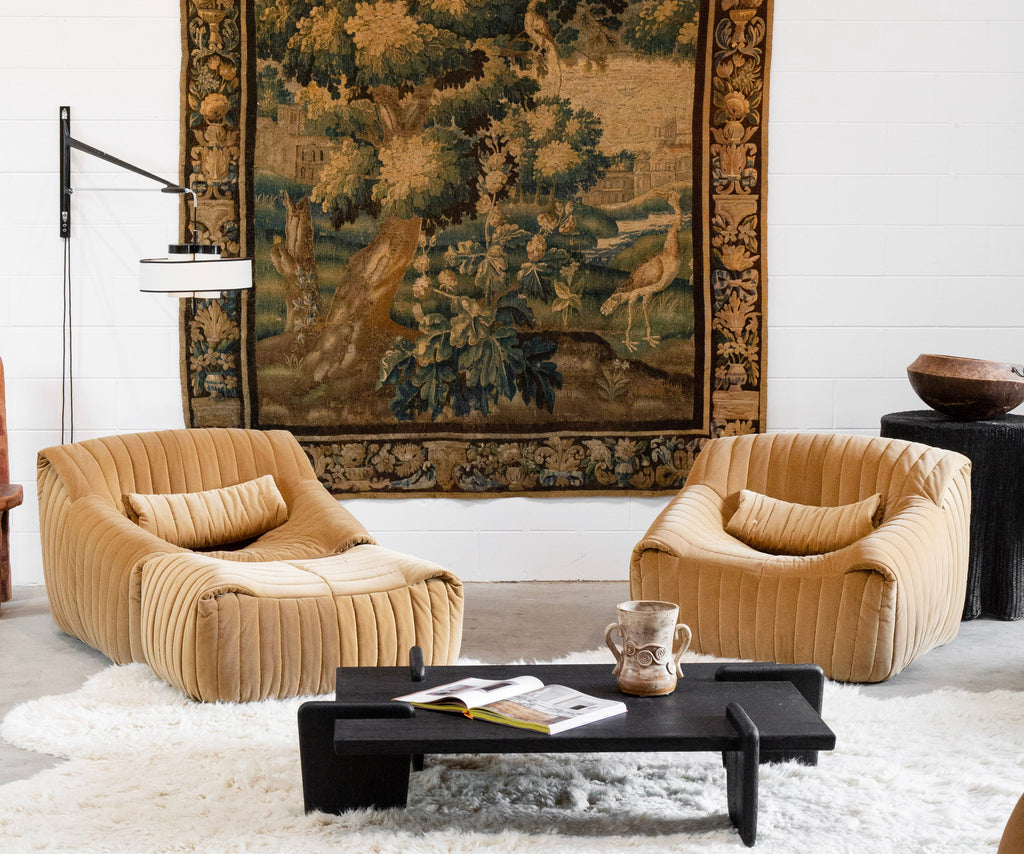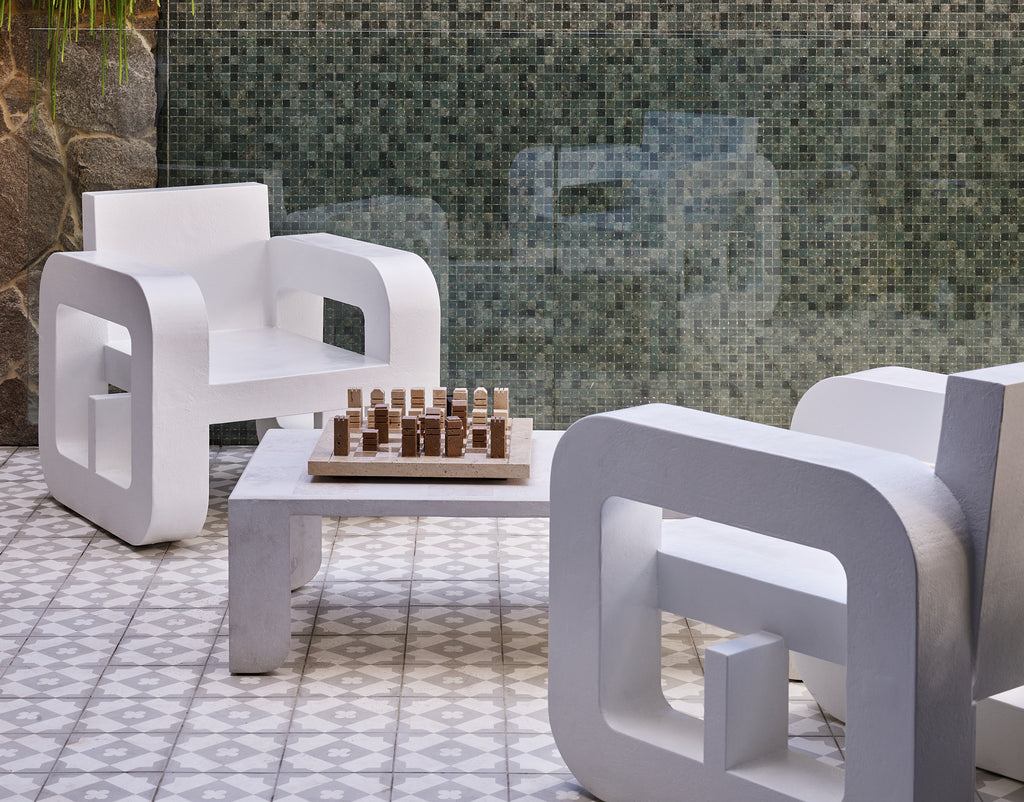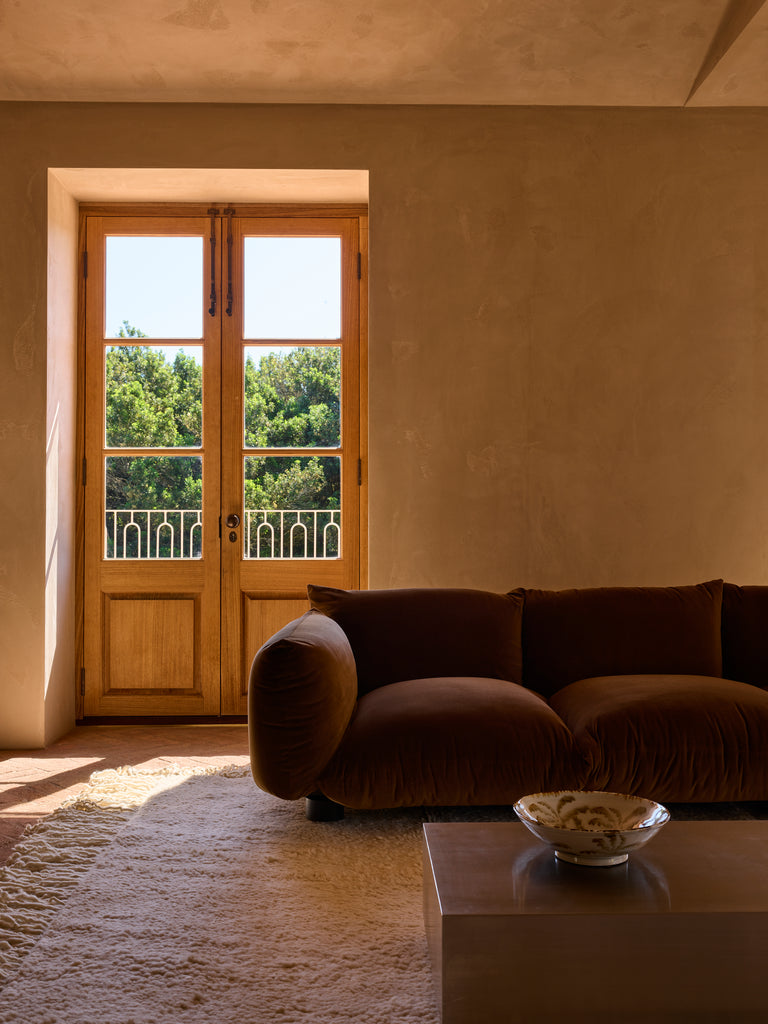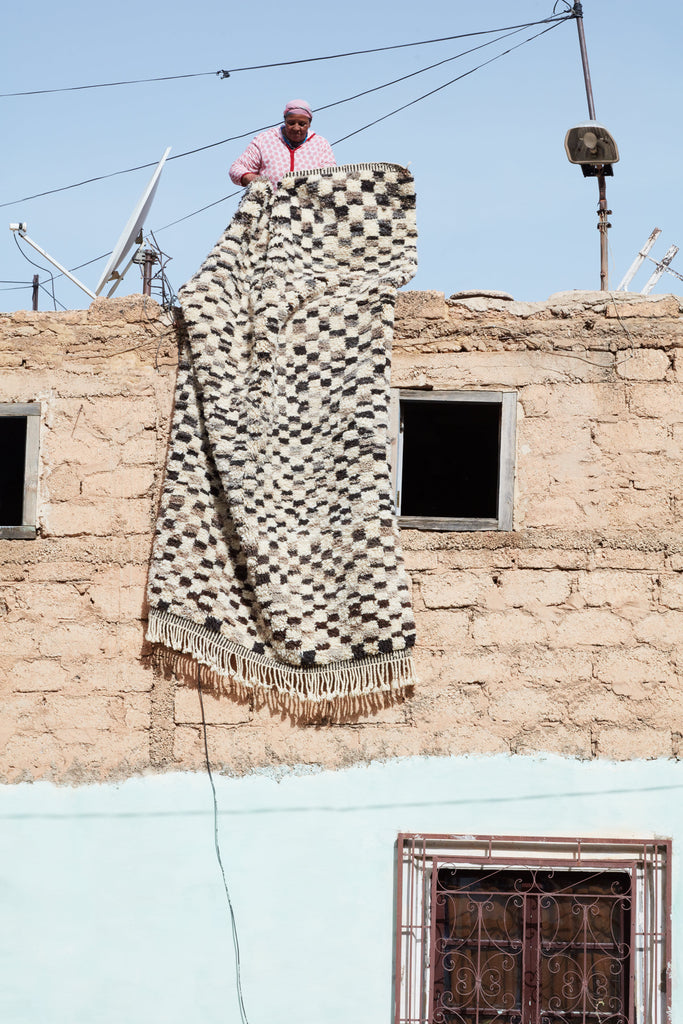Tête-à-tête
Stefano Alderuccio on creating perfume house Via Dei Mille from the ashes of his grandfathers artisanal distillery
Scents can be autobiographical. Assigned to memories we carry from childhood into our adult lives. Markers of time, they allow us to recall a memory or simply a feeling - time and time again. Inextricably tied to our emotions, memories, personal experience and the places we’ve been – scents can transport us through time and space. Via Dei Mille is an olfactory journey that began in 1950's Sicily.
As a child Stefano Alderuccio would play with his brothers in their grandparents garden. They were always intrigued by the mysterious space that were the ruins of their grandfathers distillery. With a falling down roof, dusty old glass reservoirs and bottles – the walls were still saturated with the intense perfume of the essences, remnants of a long lost era - It was a perfume that he never forgot.
We spoke to Stefano about his pursuit to uncover the reason his grandfather had interrupted his flourishing manufacturing of neroli essence in Southern Sicily and how Via Dei Mille came to be.


Your grandfather Salvatore Scorsonelli is the reason this all began. What was your relationship with your grandfather like and how do you remember him?
I had a great admiration for my grandfather Salvatore. He was a tireless Sicilian entrepreneur that would have made a great character for a novel. Salvatore 'did not even have the fifth grade' that is how we Sicilians say that someone has not even finished primary school. Regardless, he was proud of this and would say “thanks to my work I was the only in Noto, before the war to have 100 thousand liras in the bank, not even the nobles had that.”
Talk us through the pivotal moment where you began to pursue what your grandfather began all those years ago, resulting in the creation of Via Dei Mille?
I was in Noto taking a ride in the countryside on an old Vespa with my girlfriend at the time. We were slowly driving across a huge plain of citrus trees in bloom and the scent of orange blossom was so intense. My mind went straight to all those stories that were told in the family about my grandfather's floral distillery and a question arose in my mind - why had my grandfather stopped that activity? Why if all those enchanting orange flowers were always available there?
The morning after I woke up with the same pressing question and began to investigate with different members of my family, but each one gave me a different answer so I decided to search myself.
I travelled to Grasse, in France, the place where Salvatore used to ship his neroli essence and I knocked on many doors of perfume manufacturer houses and raw materials merchants. The perfume manufacturing world is a very secret one but to my surprise when I would tell the story of my grandfather’s distillery in Noto, the doors and the archives of these maisons would open widely. Surprisingly, due to my family history in perfumery, I felt somehow considered legitimately as part of the wide perfume-making family.
The perfume manufacturing world is a very secret one but to my surprise when I would tell the story of my grandfather’s distillery in Noto, the doors and the archives of these maisons would open widely.
Little by little, my original question sparked more questions which turned in to a true passion. In fact, it wasn’t just my grandfather’s story, it was a greater one. I found out that for almost three centuries, until the 60s, Sicily had been a major supplier of ingredients for the French perfumery industry, a story neglected and almost unknown. A story that began with a Sicilian gentleman named Procopio who founded Café Procope, one of the oldest Cafés of Paris. It had been he that introduced the use of the essence at the court of French King Louis XIV which resulted in the further emergence of dozens of Sicilian distilleries producing citrus and flower essences for the perfumery industry in France and in Europe, starting the spread of the essence.
Sometimes my questions lead to unforeseen destinations, and I knew I had to share this discovery with a wider audience. So the brand VIA DEI MILLE became somehow a natural sanctum of this heritage and of my discoveries. Our first perfume collection, the IANCO collection was therefore designed as a tribute, to my grandfather’s distillery and of course to Sicily, and this fascinating manufacturing past in perfumery that I had uncovered.
Your fragrances are made with some of the finest Sicilian ingredients. Describe your relationship with the natural world.
These days, it is very easy to launch a perfume brand. The industry offer ready-made formulas and fully-packed customizable perfumes, or even fully designed brands for a quite cheap price. The use of synthetic ingredients or ‘arranged’ natural ingredients are passed off for irreplaceable or precious materials is so widely spread for my liking. To discover this commercial aspect of the industry was a great disappointment for me. I then decided to try to work instead the other way around, our challenge would be to try first to discover (if any were still left) high quality Sicilian manufacturers of natural ingredients and verify if we could use their production in perfume-making.
I was very lucky as I met near Messina the producer of the most precious citrus essences existing today in the market and destined to the perfume industry. It happened that this producer had been working for more than 20 years with Jacques Chabert (Via Dei Mille's Master Perfumer) an independent perfumer based in Grasse. In this instance our luck had doubled, not only we had found a crucial Sicilian supplier, but we had found too the man who would have helped us to design our fragrances. The perfumers are another big chapter of our story. So, to come back to the natural word, chemistry is everything in perfume design. Our value is to use in any formula a natural pure ingredient instead of its artificial existing substitute.
Being an independent perfumer, Jacques not only formulates scents, but also selects and purchases raw materials directly from the producers, thus ensuring us a total and priceless freedom in ingredients procurement and in perfumes design. In these years we have submitted to Jacques and his team many new ingredients produced in Sicily, most of them organic, and Jacques is always very happy to test them and suggest if and how we can use them in perfume formulation.
Friendship is one of the pillars of Via Dei Mille, please tell us the importance of friendship to your brand.
Our project is an artisanal project, and it takes a lot of consideration in terms of expertise and knowledge which are required to make it viable. Finally, our values, such as respect for deep roots and traditions, passion, creativity, high-quality, have somehow naturally selected our partners. Most of our suppliers today were captivated by our story. They quickly understood that it was a niche project, but highly demanding and that they were called to share our same passion. Through this we have developed very strong ties with most of our suppliers and some have turned into real friendship. Friendship is a deep respect for the needs of the other which should be above any consideration, even in business.



What goes in to the process of creating a Via Dei Mille perfume and what important lessons have you learned along the way?
As a rule, we never discuss prices of raw material when we create a perfume. We start with an idea and we make dozens of different trials and versions. We don't use consumers panels as the big brands do. Besides Jacques Chabert and his team, it is just a few people who are involved in the evaluation and trial process. Jacques Chabert requires me to behave like a conductor and to consider him and his team (which are also his daughters Carla, Elsa and Nathalie) as the musicians of an orchestra and the ingredients as the instruments. I think it is a very specific image of the way we work and the relationship between a brand and its perfumer. Finally, at the end of the process, it is me, as the founder of the brand, who has to take the final decision on the formula which will become our perfume. I have always found this final moment to be a big responsibility. I am not perfume educated and my knowledge of the perfume market is very poor. It might appear pretentious, but I do not want to be influenced by exiting products, trends or industry successes. That is not to underestimate the work of others, but more to try to remain free and open. I have paid and still pay a price for such an attitude. Some industry players have affirmed that I have created a too much classic product line, that our products are ‘not niche enough’ as they are not enough extravagant, eccentric or bizarre to be considered as an innovation or just attractive - however, I don’t care.
I strongly think that the most important thing is to be consistent with one’s story and with the original motivations of one’s project. During these years, I think I have learned that patience is a major ally in the creation process. One might fall in love with an idea, an intuition, or a specific version of a perfume formula, that is always so great! However, before pursuing it, it is wise to let it decant, as you would do with wine, to live with it for a while, to try to discover how genuine and true it is, to listen to what it has to say. I have discovered that even smells can talk and with great humility we have to try to listen to the story they tell.
I have discovered that even smells can talk and with great humility we have to try to listen to the story they tell.
Your first collection IANCO is a tribute to Sicily, with fragrances of jasmine, almond and neroli – beautiful! How would you explain Sicily in words to someone who has never been there?
It is not easy at all! Maybe it would be much easier for a foreigner, but being Sicilian, it is impossible to explain or define Sicily. Any explanation would be insufficient.
Our new collection, KAOS, of which DOLCE KAOS is the first work, tries to convey this distinctive trait of the island and the locals. Antonio Buttitta, a Sicilian anthropologist, described Sicily as an ‘isle-world’, a place at the centre of the world and a whole world by itself. Indeed, no other country in the world has seen so many different people and cultural overlap and permeate each other. No other place perhaps has been so ‘world at the centre of the world’ as Sicily has throughout its history. And no agricultural landscape has probably known so many mutations: wheat, olive, vine, sugar cane, almond, pistachio, linen, cotton, citrus. So many people, civilizations and cultivations have shaped over the centuries the landscape and the Sicilian history and myth. I like to say that there are so many different Sicily and yet there is only one Sicily.
Kaos might be an appropriate word for Sicily, but not in its negative meaning, more about its mythologies, as the place where everything can arise, the place where opposites have learnt to coexist. Light and dark, fire and water, stillness and rebirth.

Smells/scents are so personal, please tell us what is your favourite smell in the world?
It is difficult to say. Usually I have a favourite smell but just for some time and it would be impossible for me to have only one. At the moment, I am in love with Labdanum for its extremely rich cultural and olfactory point of view.
We have used Labdanum in the formulation of our new fragrance DOLCE KAOS. Labdanum is a typical Mediterranean smell that is also known as the 'Black Balm'. It is a resinous material extracted from Cistus (gum rockrose), a plant of the Mediterranean basin. It as has a balsamic smell, wild, green, but also deep, warm, reminiscent of amber. It has woody and resinous notes, which is peculiar to its nature being a wild shrub, but shows also animal type of note. Among its various surprising olfactory nuances, it can offer liqueur and caramel sensations, or even of mulled wine or aged leather.
What is your most unlikely source of inspiration?
In the creation process I have a positive way of functioning more than a negative way (which is by exclusion) I let things come to me, stories, images, words, small insignificant details, from any source. I don’t rank sources. I try to stay as much open I can, and sometimes one, if it affirms, can become a strong inspiration. However, I accept that an early idea can also change along the way, being nourished by other inputs, it can therefore evolve, become richer, stronger, transform or even leave. I try to give to inspirations total freedom and if they finally wish to retire, to pull back, that is fine too.
For VIA DEI MILLE, Sicily, its culture, its natural world, are my unique source of inspiration and that is already so huge. I have travelled a lot and lived in different countries. When I left Sicily at eighteen to go and study in Milan, I felt for the first time that I was Sicilian. I was not aware of such a strong reality until the others pointed it out to me - sometimes in unpleasant or even prejudiced terms. I have always felt a deep rejection towards identity definitions and geographical borders. My aim would be to be able to feel home anywhere in this world, finally everybody should be able to feel that too. But that is just an aim of course, it is not possible in practice.
I now live in France, but during the year I spend quite a lot of time in Sicily. Part of my family is still in Noto and many of my friends are there too. Creating VIA DEI MILLE has given me the possibility of creating somehow my own Sicily that I can bring with me anywhere. Has VIA DEI MILLE made me more Sicilian then I was before? I don’t know, maybe? Roots even if we move, develop, change, evolve over time are very important, unerasable, especially for people whose origins are in a place with a very strong history and cultural heritage. So I might be a 'Sicilian emigrant' forever.
What is next for Via Dei Mille?
Our projects include two more perfumes that are inspired by a myth and some findings I made by chance in an old monastery in Sicily. That's all I can say for now.
__
Shop the new VIA DEI MILLE, IANCO Collection HERE


